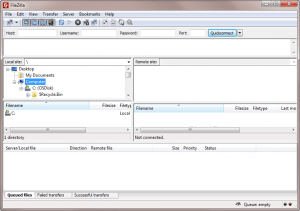FOSS Week in Review
FBI claims U.S. computers breached by Anonymous
In an exclusive story published Saturday by Reuters, the FBI has claimed Anonymous has managed to hack into U.S. government computers and steal sensitive data. What’s more, they believe these intrusions have been going on for at least a year.
“The hackers exploited a flaw in Adobe Systems Inc’s software to launch a rash of electronic break-ins that began last December, then left “back doors” to return to many of the machines as recently as last month, the Federal Bureau of Investigation said in a memo seen by Reuters.
“The memo, distributed on Thursday, described the attacks as ‘a widespread problem that should be addressed.’ It said the breach affected the U.S. Army, Department of Energy, Department of Health and Human Services, and perhaps many more agencies.
“Investigators are still gathering information on the scope of the cyber campaign, which the authorities believe is continuing. The FBI document tells system administrators what to look for to determine if their systems are compromised.”









